Meet the refugees of Operation Syrian Refugees
After all the heroic effort it took to get them to Canada, it wouldn’t mean much if we didn’t know how the refugees we brought here through Operation Syrian Refugees (OSR) were doing.
At the end of the day, OSR was about helping people. To give you a better idea of how it all worked out for the refugees we helped, we’ve gathered together some of their stories.
Take a moment to learn how they’ve been adjusting to life in Canada or read our outcomes report.
On this page
Western Canada
Abdulfatah
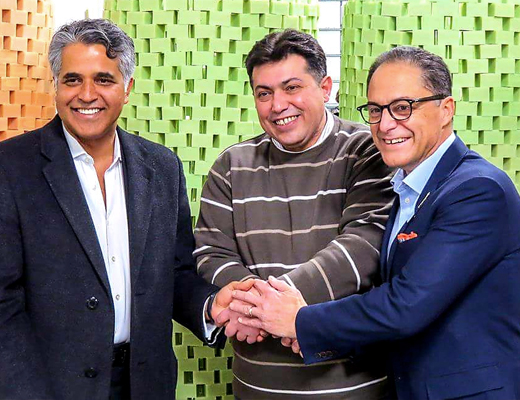
Irfan Sabir, Member of the Legislative Assembly (MLA) for Calgary-McCall (Alberta), Abdulfatah and Joe Ceci, MLA for Calgary-Buffalo (Alberta)
Calgary, Alberta
Arrived in January 2016.
“I feel so happy and safe to be in Calgary. I lost everything to the war. I had manufacturing, staff, stores, customers in Syria. Canada has a good reputation and freedom. My family has been in the soap business for more than 100 years, so it was a dream to start [my own soap business].
I went to school for 1 year to study English. It was hard at first but I’m getting better now. I am also working hard to run my business. I opened an Aleppo Savon factory and store in southeast Calgary in January 2018, followed by 2 retail locations in Calgary malls, in October and December.
Canada helped me realize that dream. Business can always get better. We are actively looking to expand in British Columbia and Ontario. Support from people has been amazing. It’s great to meet and work with different communities. There are always challenges, but hopefully time will make everything better.”
Rose
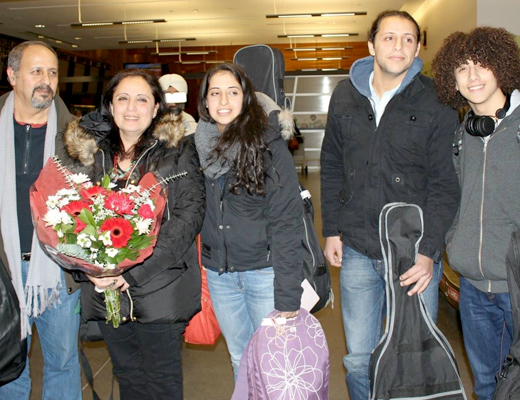
Prince George, British Columbia
Arrived with her family in 2016.
“We were praying for almost 4 years and asking God for a place to be settled in and where we can serve Him there, and God has listened and has chosen Canada and Prince George for us. We were the first Syrian refugee family in the city and we were overwhelmed by the welcome that we had from the Westwood church that sponsored us and by the community.
We were excited to start working but we couldn’t find work as we used to work in Syria. My husband used to be a civil engineer assistant, but he is working now in a big hydraulic pumps workshop, and the manager and the team there are great. Because of their support, he enjoys it. I used to be an English and Arabic teacher in Syria. I worked first as a settlement worker assistant at the Immigrant Multicultural Services Society, helping Syrian refugees to settle, and as a teacher assistant there, but now I am working as a teacher assistant at Prince George Secondary School and I am enjoying my work.
And, yes, we had some challenges [with] the differences of the system in many fields, and trying to understand it, but we are thankful for the good friends that stood with us and helped us to understand and go through it. We love Canada and Prince George, and we want to give back to this wonderful country. And hopefully this year we will get our citizenship.
Our advice for Canadians is to love their country and love each other, because love builds the country and brings prosperity.”
Ontario
Musa
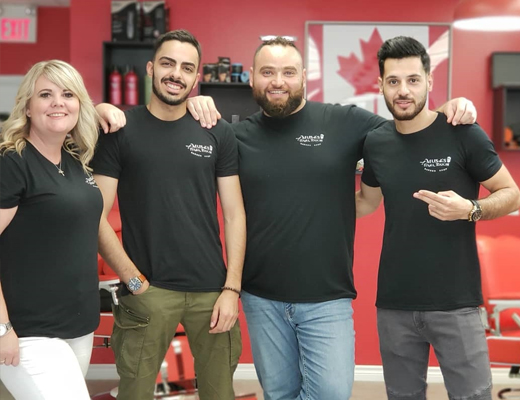
Musa with his staff
St. Catharines, Ontario
Arrived in Canada with his family in January 2016.
When Musa and his family first arrived, they lived in Port Colborne, Ontario. Their sponsors helped them a great deal with things like giving them rides to different appointments, showing them where to buy things and helping them learn English. After 6 months, Musa found work in St. Catharines with a barber, his former profession. Musa and his family moved to that city, where Musa worked, while continuing to learn about business in Canada and improve his English.
Musa has now been operating his own barbershop, Musa’s Final Touch, in St. Catharines for 1 year. He employs 2 barbers and 1 customer service staff member. Business is good, and he says he is living the Canadian dream. People are friendly, and, in Musa’s words, “Canada is the place for everyone who has a dream”.
Ziva
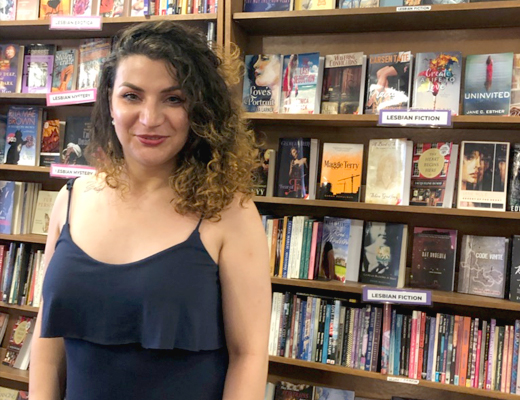
Toronto, Ontario
Arrived October 2016.
“To be honest, friendships have really given me a sense of adjustment and made me more grounded and rooted. It took a few years. In terms of housing and jobs, it’s difficult. I have been struggling to find a job. I still don’t have a job. I have experience internationally, I’ve worked for the UN. I have worked in so many places, but I still can’t find a job. Although I think that’s what it’s like, being in a new country and being first generation. It’s going to mean more navigation and more hustle and going out to do what it takes, and to be honest, part of me loves [that] even though it’s so hard sometimes. But I’m a hunter, I’m like a predator who just likes to eat, I think it’s so hard sometimes in certain situations but I’m going to keep fighting. I don’t know if I would put it on a scale, but I am adjusting: 7 or 7-and-a-half on a scale of 10.
[Being in Canada] is a place of life, it’s a space of expression, turning off the survival mode and going into living mode, and living for once. For me, I think it’s also a responsibility [that] I have the privilege of being in Canada. Living in Canada is a privilege. And I need to take that privilege and work on it, and deliver and advocate for those who don’t have the voice I have right now.”
Eastern Canada
Yara
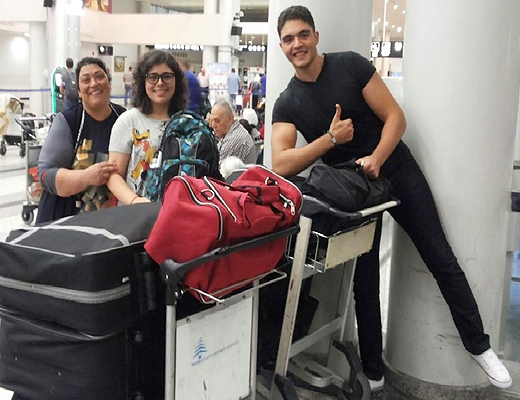
Montréal, Quebec
Arrived in September 2017 with her mother and brother.
Coming to Canada was quite the shock to Yara and her family since it was so different from where she had previously lived. “We did not have street lights and just learning how to cross the street here was an experience.” She adds that although it was stressful at first, it was a relief to finally live in an organized place.
She and her brother are enrolled in college, and they are absolutely loving their experience as students. “Studying helps you understand the place where you live, the history; it shows you how to live there.”
When asked what it means for her to be in Canada, Yara enthusiastically said that it is a chance at a better life. “I never expected coming from Lebanon that I would ever get an opportunity to go to college.” She was happy to announce that her parents are also taking adult education and are currently in language training in Montréal.
Yara added that “people here welcome you in; everyone comes from different places and they share their experiences with you and you with them. There is a strong sense of belonging, of knowing you can have your voice be heard in Canada”.
Aveen
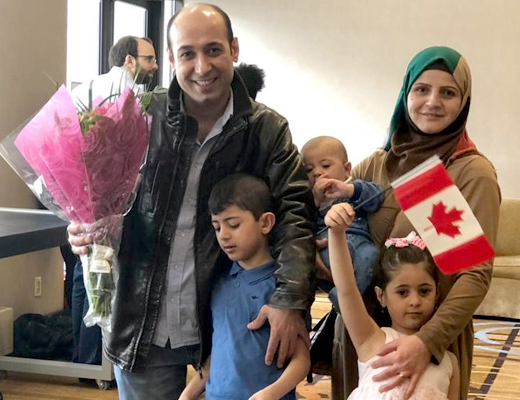
St. John’s, Newfoundland and Labrador
Arrived in Canada with her husband and 2 children in December 2015 and has since welcomed a third child.
“I don’t feel I am a refugee here. I am like any person. Here, I am safe. Everybody helps you and makes you feel you are in your country.
I came to Canada without anything and didn’t know anything, just that it was a good country and safe for my kids. That was important for me. It’s good for a future, if you want work, equality for women.
I love pancakes! I make them now at home, with syrup. I love it! My kids all love it. My daughter says, ‘Please, make for me!’”
We had the [citizenship] ceremony on May 17 last year, and now I am Canadian! I feel very happy.”